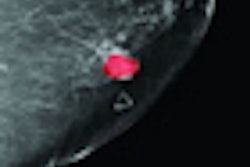Women in developing nations face breast cancer screening and treatment barriers such as misconceptions about mammography services, insufficient access, or even having to deliver their own biopsies to labs for processing, according to a report published as a supplement to the April 1 issue of the Breast.
The report, "Global Breast Health Care: Optimizing Delivery in Low- and Middle-Resource Countries," compiles three consensus statements and 11 research papers based on projects and proposals presented in 2010 at the Breast Health Global Initiative (BHGI) summit on international breast health in Chicago. A summary of the consensus statements was also published April 1 in the Lancet Oncology.
The supplement includes studies conducted by 17 breast cancer experts from 12 regions or countries rarely studied, including Kashmir and the Gaza Strip, as well as Nigeria, Malaysia, and Mexico, according to BHGI.
- In Gaza, researchers found significant differences between expatriates and Gaza residents regarding breast cancer beliefs and healthcare-seeking behaviors, despite religious, cultural, and personal similarities between the two groups.
- In Kashmir, researchers provided breast cancer awareness information and breast cancer screening to 520 women from five villages, developing a model for combining public health outreach with breast cancer awareness and cancer screening.
- In Nigeria, a study of 275 women found that 30% refused a diagnostic biopsy, and more than half refused recommended breast surgery. Patients faced barriers to care such as having to deliver their own biopsies to labs for processing, procure their own cancer drugs, or pay in advance for procedures.
- In Mexico, researchers found that women who suspected they had breast cancer when they visited a public clinic had to return an average of nearly seven times and wait more than six months before receiving a definitive diagnosis and treatment.
In addition to providing a closer look at the barriers women in developing countries face, the report offers models of programs that have improved breast cancer care in low-resource and middle-income countries, including mammography patient interventions in Chile and an integrated information system in Brazil that ties provider reimbursement for mammography services to data collection, BHGI said.




















